The Blog
Recently Featured
All Blogs
How to Find the Right Therapist
“You can’t stay in your corner of the Forest waiting for others to come to you. You have to go to them sometimes.”
—Winnie-the-Pooh
Today, we’re getting real practical. Let’s be honest: therapy feels a bit odd, awkward, and down right uncomfortable in the first place. How in the world does one go about finding a therapist who will not only make the first wobbly steps somewhat bearable, but also turn out to be someone we actually like? And yes, contrary to popular belief, you’re going to need to like your therapist in order to trust them, let alone experience growth and healing.
I had this conversation with my therapist a few weeks back. Whereas I don’t believe we’re always supposed to be “in therapy,” I’ve always valued the sacred space of therapy as a sounding board and a refiner’s fire so to speak. In other words, no matter what season I’m in, I depend on my therapist to challenge me, call my BS (bullshit and blindspots), and serve as a loving mirror when the reflection I see is less than compelling.
Whether you’re in a tight transition or a season of loss, it's imperative to reach out and find the help you need. As someone who’s sat in therapy far longer as a client then a therapist, I relate to the struggle of finding the right fit. It’s real. Today, I want to unpack this process as much as possible. You’ve already got enough on your plate.
Prep-work
Before launching on your quest, there’s some necessary prep-work. Often times, it can be the most difficult part of the process.
The first step is always to get still, spend about 10-15 minutes alone, and ask yourself what it is you need from therapy. This may seem obvious, but it’s not. Oftentimes, we’re operating in crisis. The survival strategies involved in crisis don’t provide much of a margin for eating, sleeping, let alone self-reflection. It’s important to give yourself a small window of time and ask yourself a) what you need and b) what you want from therapy. (Two different questions, mind you.) I find it easiest to write this pertinent information down in a journal or notebook. This content will serve as somewhat of a roadmap for the journey ahead.
Once you’ve taken the time to explore these questions, here are five helpful guidelines to follow:
The Quest
1. Logistics- Let’s get the unsexy bit out of the way. First things first, you need to get clear on practical parameters such as location, budget, male vs. female, type of therapy (individual/couples/family), availability, and whether or not they offer a sliding scale or the opportunity to use insurance. These will steer the next several steps accordingly. It’s worth noting that while some practitioners do accept insurance, some insurance policies only allow for a maximum number of sessions they will cover, making ongoing therapy an out-of-pocket expense. Also, confidentiality can become an issue when therapists apply diagnostic codes for billing purposes. Again, all good things to consider and inquire about based on your needs and privacy preferences. For a helpful therapist directory that often provides answers to several of these basic questions, visit psychologytoday.com.
2. Referral- Ideally, finding referrals from those who know you personally is the best place to start, be it an existing physician, family member, pastor, or friend. If possible, I always encourage people to start with their current sphere of influence when looking for therapist recommendations. This is where I’ve always had the most luck.
3. Style- Just like with dating, you’re not for everyone. No matter how fabulous you are, you won’t be compatible with every attractive person you meet (*sigh). I tell people this up front in therapy all the time. I can’t help everyone and am quick to practice transparency when I feel another therapist might be more equipped to support someone with specific needs I don’t feel qualified to meet. Do you want a no-nonsense, direct approach in therapy or would you prefer a softer, more indirect style? (Or something in between? ) Do you seek a therapist who is faith-based? Do you appreciate someone of a specific age? These qualifiers will hopefully show up in the prep-work listed above.
4. Expertise- If you’ve done therapy before and know certain modalities or tools that work for you, it’s important to bring this insight into your search. Interviewing a handful of possible therapists is important so as to understand their approach and expertise. Do you want to explore the Enneagram in your work? Do you need a grief or addictions specialist? Do you prefer brain-based therapies such as EMDR or Brainspotting? Do you like talk-therapy or more of an experiential technique? Do you need group therapy in addition to individual and which therapists provide this?
5. Consult- Most therapist will offer a free 15-30 minute phone consult. You’re about to invest time and resources into the therapeutic process. It’s vital to understand a bit more about the experience, training, and approach to therapy they have. I always encourage this as sometimes we just need an opportunity to suss it out in a quick conversation. Email is a great starting point, however, I always like to get a feel for communication style and vibe on the phone. Having as many of the prior steps filled out is bonus so as to be able to clearly ask as many questions as possible. (Also worth noting, if you need to stay within a budget, therapists who are newer to the field or working towards licensure will often provide a sliding scale rate based on your income.)
And listen, often times this “pre-production” business is a luxury. Therapy is often a last resort as we find ourselves amidst chaos, crisis, and loss. In these times, simply taking the brave first step to start therapy with someone and trusting the process to unfold as it should is all we can do.
P.S. As a helpful checklist, I’ve posted The Cheatsheet: A no-hassle guide to finding the right therapist on my website!
Oh, P.S.S. This goes without saying, but I’d LOVE to serve as a resource for you on your quest. If you have questions for me, or need referrals, I’ve got some incredible ones for you. Please reach out.
Love & Gratitude,
Katie
Looking for Purpose? Start Here....
“Before I can tell my life what I want to do with it, I must listen to my life telling me who I am.”
-Parker Palmer
I'm a big advocate for the sacred process of finding your voice—and courageously learning to use it.
In my experience, slowly crossing the threshold of confidence into the land of self-compassion and acceptance gave me this newfound freedom and excitement to be heard and seen.
It’s kind of like waking up on Christmas morning as a kid, getting that one cherished toy you’d been asking for but thought your folks probably forgot…but then they came through. All you want to do is keep it close and show it off. You love everyone, even your younger brother. The world is a beautiful place. You’re so proud and you can’t stop talking about it.
It may annoy people for a minute, and that’s okay, they’ll get over it…they love you too.
What I quickly learned is in order to truly find your voice and speak from that sacred heart space, you must first learn to listen really closely and often.
I love what Parker Palmer says in one of my all-time favorite books on finding your calling, Let Your Life Speak (a must read if you haven’t already…super short too).
He says, “Before I can tell my life what I want to do with it, I must listen to my life telling me who I am.”
Sounds esoteric, right? I actually think it’s us who overcomplicate things.
To create, we must get still and present. We must lean into the unknown. We must…listen.
Just as a flower grows and blooms from a tiny seed, you and I have everything we need to thrive locked safely inside us. Sure, we may need to nurture that part of us with inspiration and encouragement, but I assure you, it’s all in there.
As a species, humans are created to thrive and succeed, not to merely survive. Our creative imaginations are what set us apart from other species. Inside of you, there is a creative mechanism that is fully capable of getting you from merely existing to succeeding.
That’s right, you get to create the life you love.
What happens so often though, is that we get lazy, want to be told what to do, and as a result, autopilot through life. No wonder we wake up in our mid-thirties or forties with a serious purpose deficiency and a bad back in search of a pill or a promise that will make us feel alive again.
We’ve not been listening. We’ve been busy, hustling, fitting in.
We all fall somewhere on this spectrum of finding our voice. Maybe you have recently unlocked this stunning, shiny voice of yours and you really like using it. The test drive is intoxicating. Or, perhaps you're completely shut down, confusing everyone else’s demands and desires with your own. You’re exhausted and maybe even a bit resentful.
Either way, the next best step is to slow down, take several very deep breaths, and simply listen. Feel your feet on the floor and your spine growing up from your seat. Notice the sensations inside your body; they’re talking alright. Give the tension a little time-out; you can pick her up in just a minute.
This is your true self. This is the space free of ego. This is where, with some practice, your life will speak to you in profound and sweet ways. This is the power of presence inside of you. It’s the magnificent Motherload. Let’s give it a listen.
Love & Gratitude,
Katie
xoxo


































